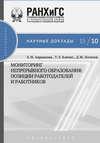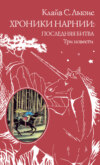Loe raamatut: «The Four Loves»
C. S. LEWIS
THE FOUR
LOVES
‘That our affections kill us not, nor dye,’
DONNE

Copyright
William Collins
An imprint of HarperCollinsPublishers 1 London Bridge Street London SE1 9GF www.WilliamCollinsBooks.com
First published in Great Britain by
Geoffrey Bles 1960
Copyright © C. S. Lewis Pte Ltd 1960
Cover design and illustration by Kimberly Glyder
All rights reserved under International and Pan-American Copyright Conventions. By payment of the required fees, you have been granted the non-exclusive, non-transferable right to access and read the text of this e-book on-screen. No part of this text may be reproduced, transmitted, down-loaded, decompiled, reverse engineered, or stored in or introduced into any information storage and retrieval system, in any form or by any means, whether electronic or mechanical, now known or hereinafter invented, without the express written permission of HarperCollins.
Ebook Edition © OCTOBER 2010 ISBN: 9780007332304
Version: 2015-12-19
CONTENTS
Cover
Title Page
Copyright
1 INTRODUCTION
2 LIKINGS AND LOVES FOR THE SUB-HUMAN
3 AFFECTION
4 FRIENDSHIP
5 EROS
6 CHARITY
About the Author
Also in this Series:
About the Publisher
1 INTRODUCTION
‘God is love,’ says St John. When I first tried to write this book I thought that his maxim would provide me with a very plain highroad through the whole subject. I thought I should be able to say that human loves deserved to be called loves at all just in so far as they resembled that Love which is God. The first distinction I made was therefore between what I called Gift-love and Need-love. The typical example of Gift-love would be that love which moves a man to work and plan and save for the future well-being of his family which he will die without sharing or seeing; of the second, that which sends a lonely or frightened child to its mother’s arms.
There was no doubt which was more like Love Himself. Divine Love is Gift-love. The Father gives all He is and has to the Son. The Son gives Himself back to the Father, and gives Himself to the world, and for the world to the Father, and thus gives the world (in Himself) back to the Father too.
And what, on the other hand, can be less like anything we believe of God’s life than Need-love? He lacks nothing, but our Need-love, as Plato saw, is ‘the son of Poverty’. It is the accurate reflection in consciousness of our actual nature. We are born helpless. As soon as we are fully conscious we discover loneliness. We need others physically, emotionally, intellectually; we need them if we are to know anything, even ourselves.
I was looking forward to writing some fairly easy panegyrics on the first sort of love and disparagements of the second. And much of what I was going to say still seems to me to be true. I still think that if all we mean by our love is a craving to be loved, we are in a very deplorable state. But I would not now say (with my master, MacDonald) that if we mean only this craving we are mistaking for love something that is not love at all. I cannot now deny the name love to Need-love. Every time I have tried to think the thing out along those lines I have ended in puzzles and contradictions. The reality is more complicated than I supposed.
First of all, we do violence to most languages, including our own, if we do not call Need-love ‘love’. Of course language is not an infallible guide, but it contains, with all its defects, a good deal of stored insight and experience. If you begin by flouting it, it has a way of avenging itself later on. We had better not follow Humpty Dumpty in making words mean whatever we please.
Secondly, we must be cautious about calling Need-love ‘mere selfishness’. Mere is always a dangerous word. No doubt Need-love, like all our impulses, can be selfishly indulged. A tyrannous and gluttonous demand for affection can be a horrible thing. But in ordinary life no one calls a child selfish because it turns for comfort to its mother; nor an adult who turns to his fellow ‘for company’. Those, whether children or adults, who do so least are not usually the most selfless. Where Need-love is felt there may be reasons for denying or totally mortifying it; but not to feel it is in general the mark of the cold egoist. Since we do in reality need one another (‘it is not good for man to be alone’), then the failure of this need to appear as Need-love in consciousness – in other words, the illusory feeling that it is good for us to be alone – is a bad spiritual symptom; just as lack of appetite is a bad medical symptom because men do really need food.
But thirdly, we come to something far more important. Every Christian would agree that a man’s spiritual health is exactly proportional to his love for God. But man’s love for God, from the very nature of the case, must always be very largely, and must often be entirely, a Need-love. This is obvious when we implore forgiveness for our sins or support in our tribulations. But in the long run it is perhaps even more apparent in our growing – for it ought to be growing – awareness that our whole being by its very nature is one vast need; incomplete, preparatory, empty yet cluttered, crying out for Him who can untie things that are now knotted together and tie up things that are still dangling loose. I do not say that man can never bring to God anything at all but sheer Need-love. Exalted souls may tell us of a reach beyond that. But they would also, I think, be the first to tell us that those heights would cease to be true Graces, would become Neo-Platonic or finally diabolical illusions, the moment a man dared to think that he could live on them and henceforth drop out the element of need. ‘The highest,’ says the Imitation, ‘does not stand without the lowest.’ It would be a bold and silly creature that came before its Creator with the boast ‘I’m no beggar. I love you disinterestedly.’ Those who come nearest to a Gift-love for God will next moment, even at the very same moment, be beating their breasts with the publican and laying their indigence before the only real Giver. And God will have it so. He addresses our Need-love: ‘Come unto me all ye that travail and are heavy-laden,’ or, in the Old Testament, ‘Open your mouth wide and I will fill it.’
Thus one Need-love, the greatest of all, either coincides with or at least makes a main ingredient in man’s highest, healthiest, and most realistic spiritual condition. A very strange corollary follows. Man approaches God most nearly when he is in one sense least like God. For what can be more unlike than fullness and need, sovereignty and humility, righteousness and penitence, limitless power and a cry for help? This paradox staggered me when I first ran into it; it also wrecked all my previous attempts to write about love. When we face it, something like this seems to result.
We must distinguish two things which might both possibly be called ‘nearness to God’. One is likeness to God. God has impressed some sort of likeness to Himself, I suppose, in all that He has made. Space and time, in their own fashion, mirror His greatness; all life, His fecundity; animal life, His activity. Man has a more important likeness than these by being rational. Angels, we believe, have likenesses which Man lacks; immortality and intuitive knowledge. In that way all men, whether good or bad, all angels including those that fell, are more like God than the animals are. Their natures are in this sense ‘nearer’ to the Divine Nature. But, secondly, there is what we may call nearness of approach. If this is what we mean, the states in which a man is ‘nearest’ to God are those in which he is most surely and swiftly approaching his final union with God, vision of God and enjoyment of God. And as soon as we distinguish nearness-by-likeness and nearness-of-approach, we see that they do not necessarily coincide. They may or may not.
Perhaps an analogy may help. Let us suppose that we are doing a mountain walk to the village which is our home. At midday we come to the top of a cliff where we are, in space, very near it because it is just below us. We could drop a stone into it. But as we are no cragsmen we can’t get down. We must go a long way round; five miles, maybe. At many points during that détour we shall, statically, be far further from the village than we were when we sat above the cliff. But only statically. In terms of progress we shall be far ‘nearer’ our baths and teas.
Since God is blessed, omnipotent, sovereign and creative, there is obviously a sense in which happiness, strength, freedom and fertility (whether of mind or body), wherever they appear in human life, constitute likenesses, and in that way proximities, to God. But no one supposes that the possession of these gifts has any necessary connection with our sanctification. No kind of riches is a passport to the Kingdom of Heaven.
At the cliff’s top we are near the village, but however long we sit there we shall never be any nearer to our bath and our tea. So here the likeness, and in that sense nearness, to Himself which God has conferred upon certain creatures and certain states of those creatures is something finished, built in. What is near Him by likeness is never, by that fact alone, going to be any nearer. But nearness of approach is, by definition, increasing nearness. And whereas the likeness is given to us – and can be received with or without thanks, can be used or abused — the approach, however initiated and supported by Grace, is something we must do. Creatures are made in their varying ways images of God without their own collaboration or even consent. It is not so that they become sons of God. And the likeness they receive by sonship is not that of images or portraits. It is in one way more than likeness, for it is unison or unity with God in will; but this is consistent with all the differences we have been considering. Hence, as a better writer has said, our imitation of God in this life – that is, our willed imitation as distinct from any of the likenesses which He has impressed upon our natures or states – must be an imitation of God incarnate: our model is the Jesus, not only of Calvary, but of the workshop, the roads, the crowds, the clamorous demands and surly oppositions, the lack of all peace and privacy, the interruptions. For this, so strangely unlike anything we can attribute to the Divine life in itself, is apparently not only like, but is, the Divine life operating under human conditions.
I must now explain why I have found this distinction necessary to any treatment of our loves. St John’s saying that God is love has long been balanced in my mind against the remark of a modern author (M. Denis de Rougemont) that ‘love ceases to be a demon only when he ceases to be a god’; which of course can be re-stated in the form ‘begins to be a demon the moment he begins to be a god’. This balance seems to me an indispensable safeguard. If we ignore it the truth that God is love may slyly come to mean for us the converse, that love is God.
I suppose that everyone who has thought about the matter will see what M. de Rougemont meant. Every human love, at its height, has a tendency to claim for itself a divine authority. Its voice tends to sound as if it were the will of God Himself. It tells us not to count the cost, it demands of us a total commitment, it attempts to override all other claims and insinuates that any action which is sincerely done ‘for love’s sake’ is thereby lawful and even meritorious. That erotic love and love of one’s country may thus attempt to ‘become gods’ is generally recognised. But family affection may do the same. So, in a different way, may friendship. I shall not here elaborate the point, for it will meet us again and again in later chapters.
Now it must be noticed that the natural loves make this blasphemous claim not when they are in their worst, but when they are in their best, natural condition; when they are what our grandfathers called ‘pure’ or ‘noble’. This is especially obvious in the erotic sphere. A faithful and genuinely self-sacrificing passion will speak to us with what seems the voice of God. Merely animal or frivolous lust will not. It will corrupt its addict in a dozen ways, but not in that way; a man may act upon such feelings but he cannot revere them any more than a man who scratches reveres the itch. A silly woman’s temporary indulgence, which is really self-indulgence, to a spoiled child – her living doll while the fit lasts – is much less likely to ‘become a god’ than the deep, narrow devotion of a woman who (quite really) ‘lives for her son’. And I am inclined to think that the sort of love for a man’s country which is worked up by beer and brass bands will not lead him to do much harm (or much good) for her sake. It will probably be fully discharged by ordering another drink and joining in the chorus.
And this of course is what we ought to expect. Our loves do not make their claim to divinity until the claim becomes plausible. It does not become plausible until there is in them a real resemblance to God, to Love Himself. Let us here make no mistake. Our Gift-loves are really God-like, and among our Gift-loves those are most God-like which are most boundless and unwearied in giving. All the things the poets say about them are true. Their joy, their energy, their patience, their readiness to forgive, their desire for the good of the beloved – all this is a real and all but adorable image of the Divine life. In its presence we are right to thank God ‘who has given such power to men’. We may say, quite truly and in an intelligible sense, that those who love greatly are ‘near’ to God. But of course it is ‘nearness by likeness’. It will not of itself produce ‘nearness of approach’. The likeness has been given us. It has no necessary connection with that slow and painful approach which must be our own (though by no means our unaided) task. Meanwhile, however, the likeness is a splendour. That is why we may mistake Like for Same. We may give our human loves the unconditional allegiance which we owe only to God. Then they become gods: then they become demons. Then they will destroy us, and also destroy themselves. For natural loves that are allowed to become gods do not remain loves. They are still called so, but can become in fact complicated forms of hatred.
Our Need-loves may be greedy and exacting but they do not set up to be gods. They are not near enough (by likeness) to God to attempt that.
It follows from what has been said that we must join neither the idolaters nor the ‘debunkers’ of human love. Idolatry both of erotic love and of ‘the domestic affections’ was the great error of nineteenth-century literature. Browning, Kingsley, and Patmore sometimes talk as if they thought that falling in love was the same thing as sanctification; the novelists habitually oppose to ‘the World’ not the Kingdom of Heaven but the home. We live in the reaction against this. The debunkers stigmatise as slush and sentimentality a very great deal of what their fathers said in praise of love. They are always pulling up and exposing the grubby roots of our natural loves. But I take it we must listen neither ‘to the over-wise nor to the over-foolish giant’. The highest does not stand without the lowest. A plant must have roots below as well as sunlight above and roots must be grubby. Much of the grubbiness is clean dirt if only you will leave it in the garden and not keep on sprinkling it over the library table. The human loves can be glorious images of Divine Love. No less than that: but also no more – proximities of likeness which in one instance may help, and in another may hinder, proximity of approach. Sometimes perhaps they have not very much to do with it either way.
2 LIKINGS AND LOVES FOR THE SUB-HUMAN
Most of my generation were reproved as children for saying that we ‘loved’ strawberries, and some people take a pride in the fact that English has the two verbs love and like while French has to get on with aimer for both. But French has a good many other languages on its side. Indeed it very often has actual English usage on its side too. Nearly all speakers, however pedantic or however pious, talk every day about ‘loving’ a food, a game, or a pursuit. And in fact there is a continuity between our elementary likings for things and our loves for people. Since ‘the highest does not stand without the lowest’ we had better begin at the bottom, with mere likings; and since to ‘like’ anything means to take some sort of pleasure in it, we must begin with pleasure.
Now it is a very old discovery that pleasures can be divided into two classes; those which would not be pleasures at all unless they were preceded by desire, and those which are pleasures in their own right and need no such preparation. An example of the first would be a drink of water. This is a pleasure if you are thirsty and a great one if you are very thirsty. But probably no one in the world, except in obedience to thirst or to a doctor’s orders, ever poured himself out a glass of water and drank it just for the fun of the thing. An example of the other class would be the unsought and unexpected pleasures of smell – the breath from a bean-field or a row of sweet-peas meeting you on your morning walk. You were in want of nothing, completely contented, before it; the pleasure, which may be very great, is an unsolicited, super-added gift. I am taking very simple instances for clarity’s sake, and of course there are many complications. If you are given a coffee or beer where you expected (and would have been satisfied with) water, then of course you get a pleasure of the first kind (allaying of thirst) and one of the second (a nice taste) at the same time. Again, an addiction may turn what was once a pleasure of the second kind into one of the first. For the temperate man an occasional glass of wine is a treat – like the smell of the bean-field. But to the alcoholic, whose palate and digestion have long since been destroyed, no liquor gives any pleasure except that of relief from an unbearable craving. So far as he can still discern tastes at all, he rather dislikes it; but it is better than the misery of remaining sober. Yet through all their permutations and combinations the distinction between the two classes remains tolerably clear. We may call them Need-pleasures and pleasures of Appreciation.
The resemblance between these Need-pleasures and the ‘Need-loves’ in my first chapter will occur to everyone. But there, you remember, I confessed that I had had to resist a tendency to disparage the Need-loves or even to say they were not loves at all. Here, for most people, there may be an opposite inclination. It would be very easy to spread ourselves in laudation of the Need-pleasures and to frown upon those that are Appreciatives: the one so natural (a word to conjure with), so necessary, so shielded from excess by their very naturalness, the other unnecessary and opening the door to every kind of luxury and vice. If we were short of matter on this theme we could turn on the tap by opening the works of the Stoics and it would run till we had a bathful. But throughout this inquiry we must be careful never to adopt prematurely a moral or evaluating attitude. The human mind is generally far more eager to praise and dispraise than to describe and define. It wants to make every distinction a distinction of value; hence those fatal critics who can never point out the differing quality of two poets without putting them in an order of preference as if they were candidates for a prize. We must do nothing of the sort about the pleasures. The reality is too complicated. We are already warned of this by the fact that Need-pleasure is the state in which Appreciative pleasures end up when they go bad (by addiction).
For us at any rate the importance of the two sorts of pleasure lies in the extent to which they foreshadow characteristics in our ‘loves’ (properly so called).
The thirsty man who has just drunk off a tumbler of water may say, ‘By Jove, I wanted that.’ So may the alcoholic who has just had his ‘nip’. The man who passes the sweet-peas in his morning walk is more likely to say, ‘How lovely the smell is.’ The connoisseur after his first sip of the famous claret, may similarly say, ‘This is a great wine.’ When Need-pleasures are in question we tend to make statements about ourselves in the past tense; when Appreciative pleasures are in question we tend to make statements about the object in the present tense. It is easy to see why.
Shakespeare has described the satisfaction of a tyrannous lust as something
Past reason hunted and, no sooner had, Past reason hated.
But the most innocent and necessary of Need-pleasures have about them something of the same character – only something, of course. They are not hated once we have had them, but they certainly ‘die on us’ with extraordinary abruptness, and completely. The scullery tap and the tumbler are very attractive indeed when we come in parched from mowing the grass; six seconds later they are emptied of all interest. The smell of frying food is very different before and after breakfast. And, if you will forgive me for citing the most extreme instance of all, have there not for most of us been moments (in a strange town) when the sight of the word GENTLEMEN over a door has roused a joy almost worthy of celebration in verse?
Pleasures of Appreciation are very different. They make us feel that something has not merely gratified our senses in fact but claimed our appreciation by right. The connoisseur does not merely enjoy his claret as he might enjoy warming his feet when they were cold. He feels that here is a wine that deserves his full attention; that justifies all the tradition and skill that have gone to its making and all the years of training that have made his own palate fit to judge it. There is even a glimmering of unselfishness in his attitude. He wants the wine to be preserved and kept in good condition, not entirely for his own sake. Even if he were on his death-bed and was never going to drink wine again, he would be horrified at the thought of this vintage being spilled or spoiled or even drunk by clods (like myself) who can’t tell a good claret from a bad. And so with the man who passes the sweet-peas. He does not simply enjoy, he feels that this fragrance somehow deserves to be enjoyed. He would blame himself if he went past inattentive and undelighted. It would be blockish, insensitive. It would be a shame that so fine a thing should have been wasted on him. He will remember the delicious moment years hence. He will be sorry when he hears that the garden past which his walk led him that day has now been swallowed up by cinemas, garages and the new bypass.
Scientifically both sorts of pleasures are, no doubt, relative to our organisms. But the Need-pleasures loudly proclaim their relativity not only to the human frame but to its momentary condition, and outside that relation have no meaning or interest for us at all. The objects which afford pleasures of Appreciation give us the feeling – whether irrational or not – that we somehow owe it to them to savour, to attend to and praise it. ‘It would be a sin to set a wine like that before Lewis,’ says the expert in claret. ‘How can you walk past this garden taking no notice of the smell?’ we ask. But we should never feel this about a Need-pleasure: never blame ourselves or others for not having been thirsty and therefore walking past a well without taking a drink of water.
How the Need-pleasures foreshadow our Need-loves is obvious enough. In the latter the beloved is seen in relation to our own needs, just as the scullery tap is seen by the thirsty man or the glass of gin by the alcoholic. And the Need-love, like the Need-pleasure, will not last longer than the need. This does not, fortunately, mean that all affections which begin in Need-love are transitory. The need itself may be permanent or recurrent. Another kind of love may be grafted on the Need-love. Moral principles (conjugal fidelity, filial piety, gratitude, and the like) may preserve the relationship for a lifetime. But where Need-love is left unaided we can hardly expect it not to ‘die on us’ once the need is no more. That is why the world rings with the complaints of mothers whose grown-up children neglect them and of forsaken mistresses whose lovers’ love was pure need – which they have satisfied. Our Need-love for God is in a different position because our need of Him can never end either in this world or in any other. But our awareness of it can, and then the Need-love dies too. ‘The Devil was sick, the Devil a monk would be.’ There seems no reason for describing as hypocritical the short-lived piety of those whose religion fades away once they have emerged from ‘danger, necessity, or tribulation’. Why should they not have been sincere? They were desperate and they howled for help. Who wouldn’t?
What Appreciative pleasure foreshadows is not so quickly described.
First of all, it is the starting point for our whole experience of beauty. It is impossible to draw a line below which such pleasures are ‘sensual’ and above which they are ‘aesthetic’. The experiences of the expert in claret already contain elements of concentration, judgment and disciplined perceptiveness, which are not sensual; those of the musician still contain elements which are. There is no frontier – there is seamless continuity – between the sensuous pleasure of garden smells and an enjoyment of the countryside (or ‘beauty’) as a whole, or even our enjoyment of the painters and poets who treat it.
And, as we have seen, there is in these pleasures from the very beginning a shadow or dawn of, or an invitation to, disinterestedness. Of course in one way we can be disinterested or unselfish, and far more heroically so, about the Need-pleasures: it is a cup of water that the wounded Sidney sacrifices to the dying soldier. But that is not the sort of disinterestedness I now mean. Sidney loves his neighbour. But in the Appreciative pleasures, even at their lowest, and more and more as they grow up into the full appreciation of all beauty, we get something that we can hardly help calling love and hardly help calling disinterested, towards the object itself. It is the feeling which would make a man unwilling to deface a great picture even if he were the last man left alive and himself about to die; which makes us glad of unspoiled forests that we shall never see; which makes us anxious that the garden or bean-field should continue to exist. We do not merely like the things; we pronounce them, in a momentarily God-like sense, ‘very good’.
And now our principle of starting at the lowest – without which ‘the highest does not stand’ – begins to pay a dividend. It has revealed to me a deficiency in our previous classification of the loves into those of Need and those of Gift. There is a third element in love, no less important than these, which is foreshadowed by our Appreciative pleasures. This judgment that the object is very good, this attention (almost homage) offered to it as a kind of debt, this wish that it should be and should continue being what it is even if we were never to enjoy it, can go out not only to things but to persons. When it is offered to a woman we call it admiration; when to a man, hero-worship; when to God, worship simply.
Need-love cries to God from our poverty; Gift-love longs to serve, or even to suffer for, God; Appreciative love says: ‘We give thanks to thee for thy great glory.’ Need-love says of a woman ‘I cannot live without her’; Gift-love longs to give her happiness, comfort, protection – if possible, wealth; Appreciative love gazes and holds its breath and is silent, rejoices that such a wonder should exist even if not for him, will not be wholly dejected by losing her, would rather have it so than never to have seen her at all.
We murder to dissect. In actual life, thank God, the three elements of love mix and succeed one another, moment by moment. Perhaps none of them except Need-love ever exists alone, in ‘chemical’ purity, for more than a few seconds. And perhaps that is because nothing about us except our neediness is, in this life, permanent.
Two forms of love for what is not personal demand special treatment.
For some people, perhaps especially for Englishmen and Russians, what we call ‘the love of nature’ is a permanent and serious sentiment. I mean here that love of nature which cannot be adequately classified simply as an instance of our love for beauty. Of course many natural objects – trees, flowers and animals – are beautiful. But the nature-lovers whom I have in mind are not very much concerned with individual beautiful objects of that sort. The man who is distracts them. An enthusiastic botanist is for them a dreadful companion on a ramble. He is always stopping to draw their attention to particulars. Nor are they looking for ‘views’ or landscapes. Wordsworth, their spokesman, strongly deprecates this. It leads to ‘a comparison of scene with scene’, makes you ‘pamper’ yourself with ‘meagre novelties of colour and proportion’. While you are busying yourself with this critical and discriminating activity you lose what really matters – the ‘moods of time and season’, the ‘spirit’ of the place. And of course Wordsworth is right. That is why, if you love nature in his fashion, a landscape painter is (out of doors) an even worse companion than a botanist.
Tasuta katkend on lõppenud.




















